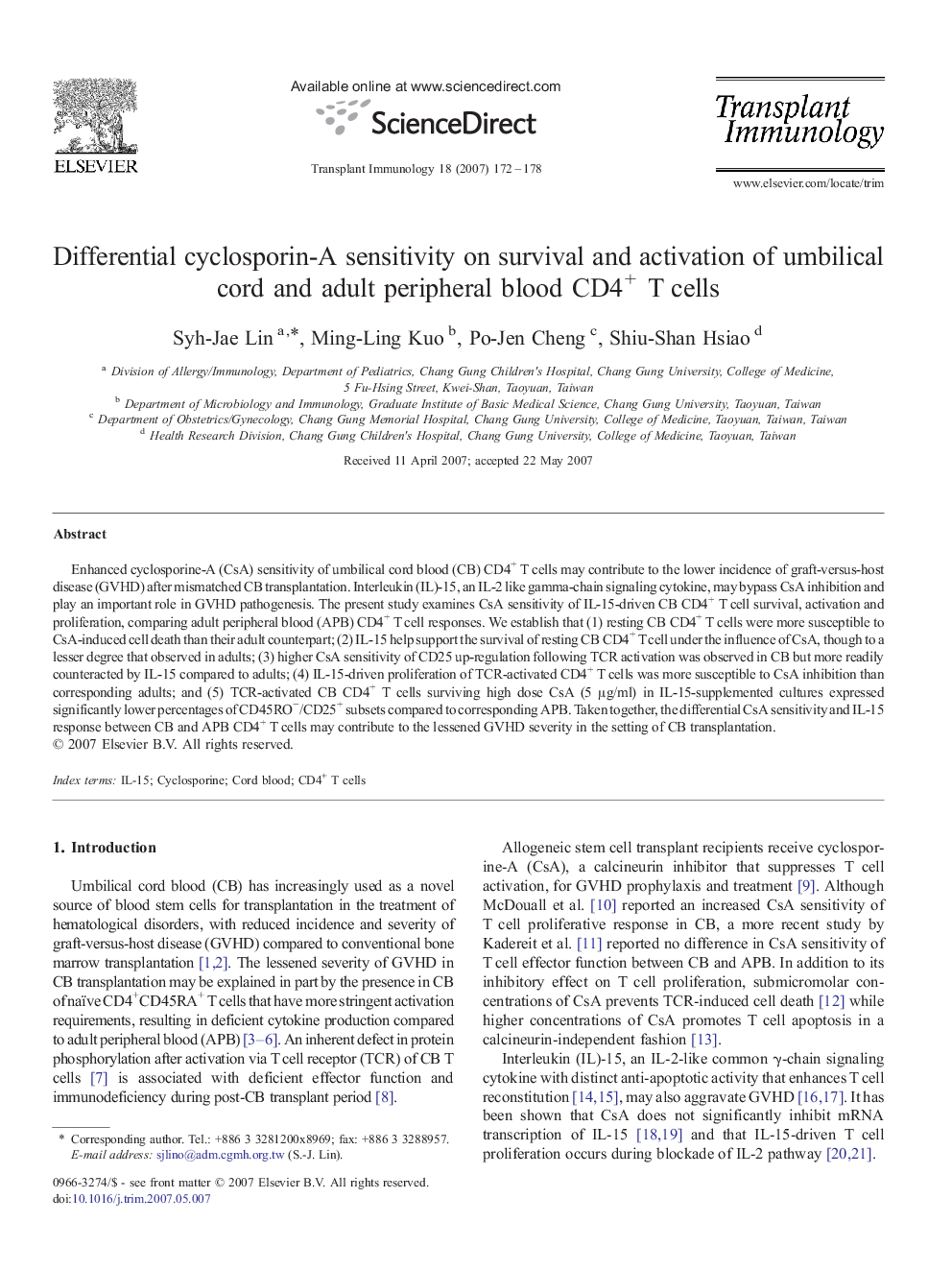| Article ID | Journal | Published Year | Pages | File Type |
|---|---|---|---|---|
| 3392488 | Transplant Immunology | 2007 | 7 Pages |
Enhanced cyclosporine-A (CsA) sensitivity of umbilical cord blood (CB) CD4+ T cells may contribute to the lower incidence of graft-versus-host disease (GVHD) after mismatched CB transplantation. Interleukin (IL)-15, an IL-2 like gamma-chain signaling cytokine, may bypass CsA inhibition and play an important role in GVHD pathogenesis. The present study examines CsA sensitivity of IL-15-driven CB CD4+ T cell survival, activation and proliferation, comparing adult peripheral blood (APB) CD4+ T cell responses. We establish that (1) resting CB CD4+ T cells were more susceptible to CsA-induced cell death than their adult counterpart; (2) IL-15 help support the survival of resting CB CD4+ T cell under the influence of CsA, though to a lesser degree that observed in adults; (3) higher CsA sensitivity of CD25 up-regulation following TCR activation was observed in CB but more readily counteracted by IL-15 compared to adults; (4) IL-15-driven proliferation of TCR-activated CD4+ T cells was more susceptible to CsA inhibition than corresponding adults; and (5) TCR-activated CB CD4+ T cells surviving high dose CsA (5 μg/ml) in IL-15-supplemented cultures expressed significantly lower percentages of CD45RO−/CD25+ subsets compared to corresponding APB. Taken together, the differential CsA sensitivity and IL-15 response between CB and APB CD4+ T cells may contribute to the lessened GVHD severity in the setting of CB transplantation.
